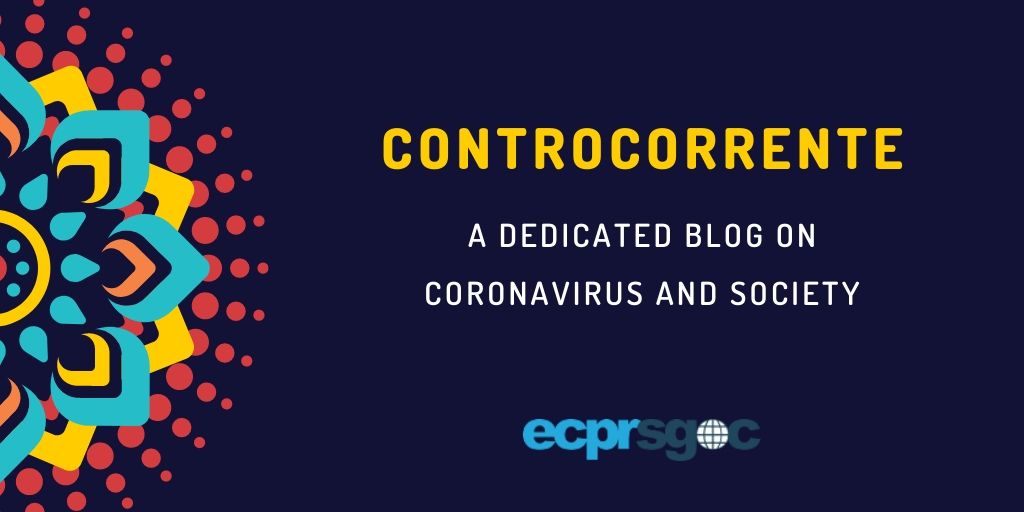
Wavering between optimism and pessimism: Covid–19, corruption and organised crime
Heather Marquette
International Development Department, University of Birmingham
Friends and colleagues have heard me banging on about the film ‘Ready Player One’ for some time as having one of the scariest intro scenes ever. Set in 2045, the film stars a young man named Wade Watts who introduces us to a semi-dystopian world where two massive corporations control most of the world’s wealth, and where urban centres are packed so tightly people are forced to live in ‘Stacks’. In this vision of our near future, most people choose to live their lives out in a virtual reality world called the Oasis.
As Wade tells us,
I was born in 2027. After the corn syrup droughts, after the bandwidth riots. After people stopped trying to fix problems and just tried to outlive them…These days, reality is a bummer. Everyone is looking for a way to escape…James Halliday saw the future. And then he built it. He gave us a place to go. A place called the Oasis.
Directed by Stephen Spielberg, the film is spectacularly visual and great fun to watch, but it also tells us important things about the human condition – especially our need to connect, both inside a virtual world and in ‘real life’.
So here we are in 2020, seven years before the fictional Wade Watts was born, locked in our houses, connecting in ‘real life’ – if we’re lucky – with only our immediate families, but connecting with growing numbers of people in virtual worlds. Suddenly an Oasis where you (or your avatar at least) can sit in your favourite café (oh, how I miss mine…) or climb a mountain or dance the night away with friends seems less dystopian. Thanks to special suits using haptic technology, in the world of ‘Ready Player One’ virtual touch becomes real life touch. The thought of being able to reach out to friends and family for a hug or a head on the shoulder, even if only in a virtual world… now you can see why I think it’s such so scary. My children don’t see it as a dystopian vision of the future and, as lockdown continues, I can better understand why.

The thing about working in global development is that I’m constantly aware of how lucky I am. My husband and I are both able to do our work from home and – after some serious adaptations for remote working – we’re still able to be paid. Our children are old enough to feed themselves and, for the most part, to get on with their school work (though my son does need some encouragement to stop playing video games with his friends). We have enough room for everyone to have their own space, with food in the fridge, strong WIFI and a quiet, safe, green neighbourhood to walk in for our once-a-day-as-allowed family walk. Even by UK standards, we’re pretty lucky, and we remind ourselves of this all the time. It helps with keeping away the sadness and the fear: for my husband’s parents on their own, for my parents 3,000 miles away in a country I now can’t travel to, for our children’s futures. We are so lucky. We are so lucky…
For obvious reasons, with my DFID and my own research hats on, I’ve been thinking a lot about what the political and social impacts of Covid-19 might be, particularly around corruption and organised crime. We are living through what we know is a proper ‘critical juncture’, and this means that while there is an extraordinary potential opportunity to shift the corruption equilibrium, there are also new threats that will emerge. We don’t know yet what all of these will be, but we can be pretty confident in some ‘known unknowns’, as Christine Bell talked about in a recent thought piece on Covid-19 and the ‘predictable unpredictability’ of violent conflict.
If I’m being optimistic – and it is hard to feel optimistic right now, there may be possibilities to push for genuine political will to change the current status quo. Every country, rich or poor, is going to have to dig deep to find ways to fund the levels of expenditure needed to help our economies weather – as best as we can – the likely coming global downturn. The costs of Covid-19 are incomprehensibly high and can’t be met by increasing middle- or lower-income taxes, especially with a middle class that will certainly shrink in size. Could this mean that a tax (global? national?) on wealth could be coming?
In particular, will we finally see the shut-down of what the journalist and writer Oliver Bullough has called ‘Moneyland’, including tax havens and shell companies, as countries realise that raising taxes on the poor and middle classes without dealing with the massive wealth inequality hidden away offshore first is likely to be politically destabilising? Will there be no choice, with governments scrambling under the sofa cushions (metaphorically speaking…) to find whatever revenue they can when they realise that the poor and middle classes have nothing left to give?
Will politicians and elites in poor countries, used to bypassing their own failing service delivery sectors by using hospitals and schools in rich countries, now face the reality of falling sick with their own crumbling health sectors, trapped by travel bans and closed borders? Will this create momentum to finally tackle underfunded service delivery systems that have failed their fellow citizens for so long and now risk failing elites and their children too? And if tax havens and shell companies were shut down, where else could corrupt elites put their money other than back into their own systems?
If I’m being optimistic, once we’re out of this hell that the world is now in, it feels like a once-in-a-lifetime chance to change corrupt systems for good at each level – international, national and subnational – in a way that enhances the security and life chances of us all.
If I’m being pessimistic…well, it’s a bit hard to be anything but a pessimist right now. My recent research with Caryn Peiffer has looked at how corruption persists in resource scarce environments because it helps people solve ‘real world’ problems. When medicines are scarce, when doctors are too few, when schools lack textbooks, when public servants aren’t paid enough to live on, petty corruption thrives. I spoke about this at last year’s OECD Global Anti-Corruption & Integrity Forum, thinking about the looming threat in the UK at the time from a ‘no-deal Brexit’. Robert Barrington wrote about this recently looking at the potential return of the black market that thrived in the UK after the second World War. Rather than seeing petty corruption as largely a characteristic of poor countries, will Covid-19 lead to the kind of global resource scarcity that sees black markets, bribery and other forms of corruption begin to thrive again in places where these haven’t been seen in generations? What would this do to social and political norms, after the crisis passes?
At the 2019 launch of the Global Integrity Anti-Corruption Evidence research programme, I gave a keynote address on the history of anti-corruption research. Building on work by Doron Navot, I looked at historical patterns that suggest peaks and troughs in interest (and funding) linked to shifting concerns regarding scarcity, (organised) crime, inequality, forced mass migration, urbanisation, changing social norms and fear. In fact, public concern about corruption tends to go hand-in-hand with fear about crime, and organised crime in particular. Already we’re hearing anecdotal evidence about organised crime gangs stepping into spaces vacated by the state, such as drugs gangs in Brazil enforcing Covid-19 lockdowns. In our Covid-19 landscape, will this spark fear, or relief?
Am I an optimist or pessimist? I’m not sure. I am sure though that there’s never been a better time to believe in the power of all of us to change things for the better. If we don’t, there are plenty of people poised to change things for the worse, without an Oasis for us all to hide our children in.
***
This blog aims to reflect the opinions, thoughts, and concerns of academics and researchers related to COVID-19. It does not aim to engage any prediction. All views belong to authors and it does not represent the views of any organisation.

